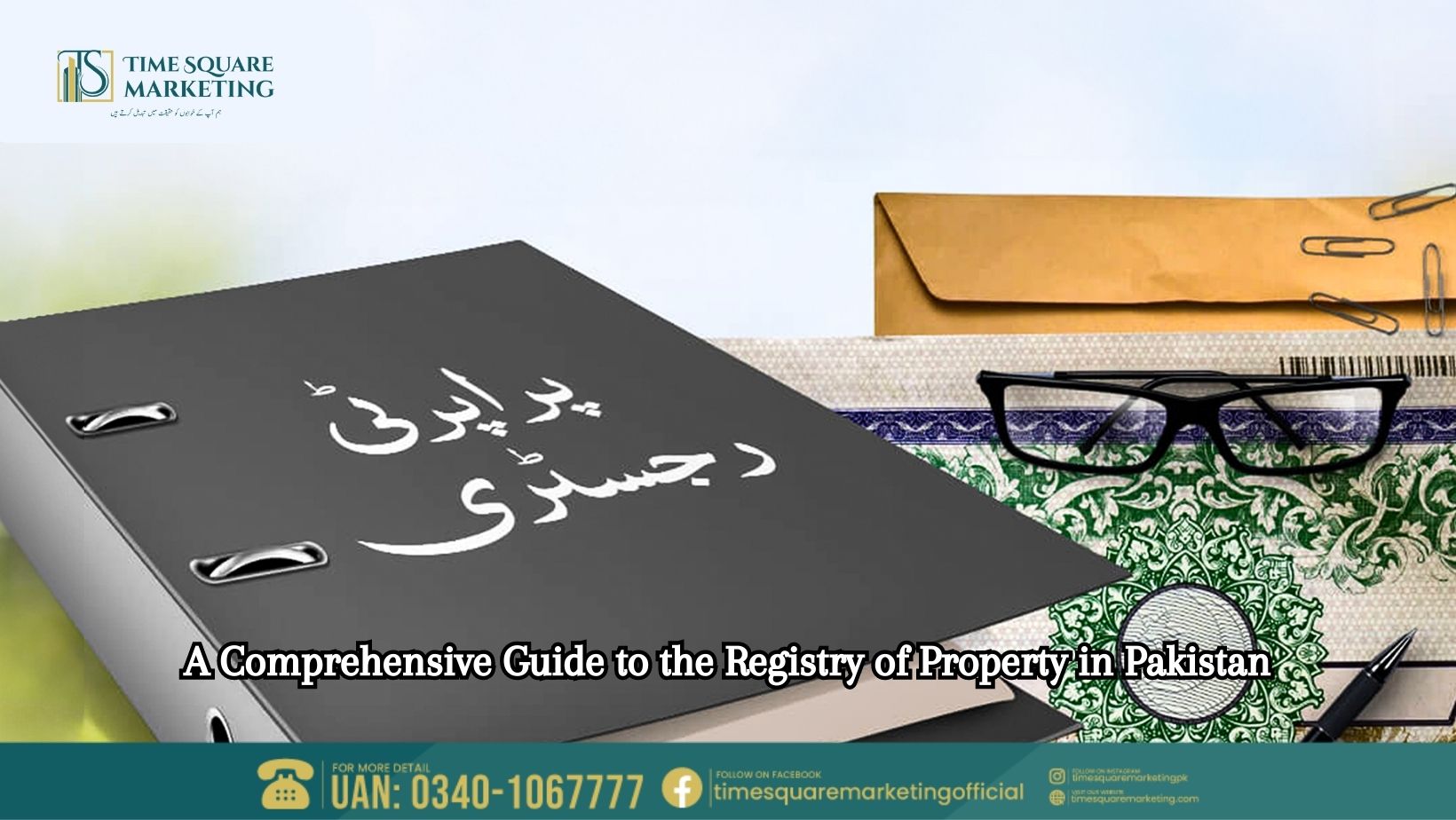The registry of property in Pakistan is a crucial legal process that establishes the ownership rights of an individual over a piece of real estate. It is essential to ensure transparency and avoid disputes related to land and property transactions. This comprehensive guide will walk you through the intricacies of the property registration process in Pakistan, highlighting its significance, steps involved, and the importance of adhering to the legal requirements.
See Also: Blue World City Islamabad (UPDATED – 2023) Payment Plan
Importance of Property Registration
Property registration in Pakistan is of paramount importance for various reasons. Firstly, it provides legal evidence of ownership, preventing fraudulent claims and disputes. Secondly, registered property can be used as collateral for loans and other financial transactions, facilitating economic activities. Thirdly, the government relies on property registration to assess and collect property taxes, thereby contributing to the country’s revenue generation.
See Also: How to Spot a Great Realtor
Legal Framework for Property Registration
The legal framework for property registration in Pakistan is governed by the Registration Act, 1908, which is a federal law applicable to the entire country. Additionally, each province may have its own set of laws and regulations that complement the federal act. The local land revenue laws and municipal rules further regulate the registration process at the provincial and district levels.
Registration Authority
The registration of property is administered by the Registrar of Properties, who is an officer appointed by the government. In rural areas, the registration process is overseen by the Sub-Registrar, while in urban areas, the process is carried out by the Assistant Registrar or Deputy Registrar of Properties. The registration authority is responsible for maintaining records, conducting property transfers, and ensuring the legality of the registration process.
See Also: Significance of Gwadar in the Real Estate of Pakistan
Documents Required for Property Registration
To initiate the property registration process, certain documents must be presented to the relevant registration authority. These documents typically include:
Sale Deed or Transfer Deed
This document outlines the details of the property transfer, including the names of the buyer and seller, property description, sale consideration, and terms and conditions of the transaction.
Title Deed
The title deed establishes the seller’s ownership rights over the property, ensuring that they have the legal authority to sell it.
Identity Documents
Both the buyer and seller must provide their identity documents, such as national identity cards or passports, to verify their identities.
Power of Attorney (if applicable)
If one of the parties involved in the transaction is represented by an agent through a power of attorney, the document must be provided.
No Objection Certificate (NOC) from Relevant Authorities
In certain cases, a NOC may be required from local government bodies or other relevant authorities, depending on the property’s location and nature.
Steps Involved in Property Registration
The property registration process in Pakistan typically involves the following steps:
Step 1: Document Preparation
The buyer and seller or their legal representatives prepare the necessary documents, including the sale deed and title deed.
Step 2: Payment of Stamp Duty
Before registering the property, the buyer must pay the required stamp duty, which varies based on the property’s value and location.
Step 3: Visit to the Sub-Registrar's Office
Both parties, along with two witnesses, visit the office of the Sub-Registrar or Assistant Registrar to register the property.
Step 4: Verification and Biometric Registration
The registration authority verifies the documents and conducts biometric registration of the parties involved.
Step 5: Execution of the Sale Deed
The sale deed is executed in the presence of the Sub-Registrar or Assistant Registrar and witnesses.
Step 6: Registration and Record-Keeping
Once all formalities are completed, the property is officially registered, and the relevant records are maintained by the registration authority.
Registration Fees and Taxes
The property registration process involves payment of various fees and taxes. These include the registration fee, stamp duty, and capital value tax (CVT). The stamp duty is calculated based on the property’s value, while the CVT is usually a fixed percentage of the property’s value. The registration fee covers the administrative costs associated with the registration process.
Post-Registration Process
After the property is successfully registered, the buyer receives a copy of the registered sale deed as proof of ownership. It is crucial to keep this document safe, as it serves as legal evidence of ownership. Additionally, the registration details are entered into the government’s land records, creating a transparent system for property transactions and ownership verification.
Importance of Professional Assistance
Given the legal complexities involved in property registration, it is advisable to seek professional assistance from lawyers or real estate consultants. They can guide you through the process, ensure compliance with all legal requirements, and safeguard your interests during the transaction.
Conclusion
The registry of property in Pakistan is a crucial process that establishes legal ownership and facilitates transparent property transactions. Understanding the legal framework, adhering to the registration process, and seeking professional assistance are essential steps to ensure a smooth and secure property transfer. By following this comprehensive guide, buyers and sellers can navigate the property registration process with confidence and protect their interests in the real estate market of Pakistan.










